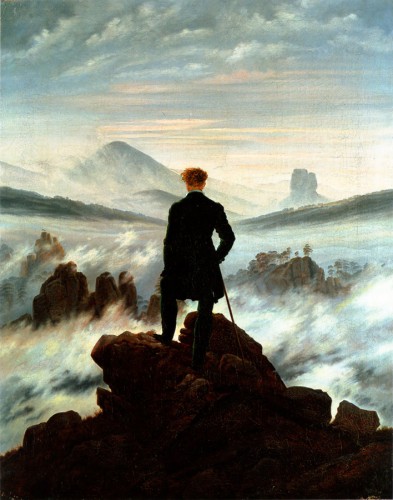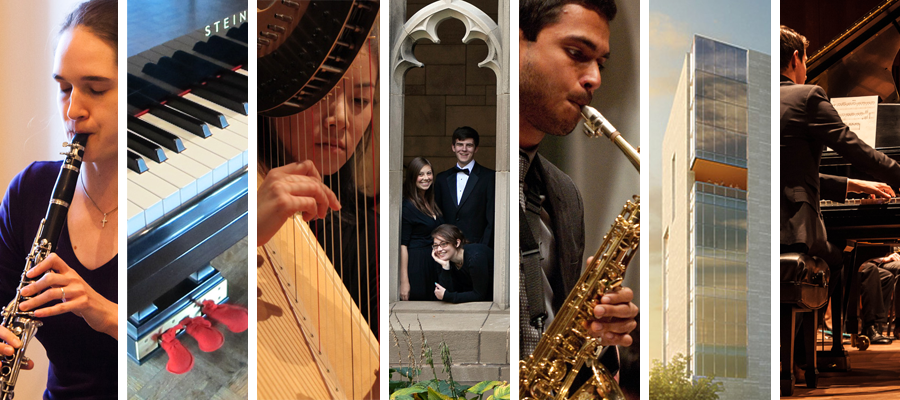 Robert Whalen is the newly appointed Director of the Chamber Orchestra at the University of Chicago. UChO will perform the music of Mozart, Corigliano, and Schubert on Saturday, November 17, 2012 at 8 PM in the new Logan Center for the Arts Performance Hall. Admission is free.
Robert Whalen is the newly appointed Director of the Chamber Orchestra at the University of Chicago. UChO will perform the music of Mozart, Corigliano, and Schubert on Saturday, November 17, 2012 at 8 PM in the new Logan Center for the Arts Performance Hall. Admission is free.
As the new director of the University Chamber Orchestra, how have you enjoyed working with the students and faculty here at the UChicago?
What a joy it has been to work with the students and faculty here. There are few places on earth like the University of Chicago. The caliber of the student body, the distinguished faculty, the amazing libraries, and world-class resources in all departments make the University of Chicago a very special place. It’s an honor to be here.
How are preparations going for the first University Chamber Orchestra concert of the year? Can you tell me a little bit about the repertoire that is being presented Saturday, Nov. 17th?
The program includes includes Mozart’s Overture to Don Giovanni, John Corigliano’s Elegy, and Schubert’s Symphony No. 6 in C Major. These works are gorgeous, and have several deeper thematic threads that connect all three pieces. First, the concert offers divergent perspectives on romanticism. Mozart’s Don Giovanni precedes the so-called “Romantic” period in music, but is full of many of the musical characteristics that will later define the music of that era. The music of 20th/21st century composer John Corigliano is often described as “neo-romantic”, primarily because of its sweeping melodic lines and lush harmonies, but lies 75 years beyond the historical end of the Romantic Period. Schubert’s music exists at the very cusp of the Romantic Period, even within his own oeuvre. His next symphony, the famous 7th Symphony in b minor, casts such a different mood than the Sixth, but shares many stylistic characteristics. Thus we approach the idea of Romanticism through music not contained within the historical period. Secondly, all three composers are gifted writers of soaring, endlessly agile melodies, and yet each composer uses their melodies very differently within the larger musical structure of their works. Finally, the Corigliano, with the Mozart and Schubert, enables us to encounter the experience of memory and reflection on our musical past as we move into our musical future. In Corigliano’s Elegy, he looks to the recent musical past through allusions to the works of his teacher (Samuel Barber’s “Adagio for Strings” and “Horizon”). Corigliano has a history of using the past in his music as lens on the present. In his opera Ghosts of Versailles he confronts, cajoles, and flips the past upside down as he seeks to continue the plot of Mozart’s Da Ponte operas. His more rigorous encounter with Beethoven in “Fantasia on an Ostinato” builds the most incredible structure built on a three note rhythmic cell from the Second Movement of Beethoven’s Seventh Symphony. So, the concert seeks to expose not only the relationships between the pieces, but how we frame our perspective and history of their relationships.
Next Monday will be our penultimate rehearsal before the November 17th concert. We had a great rehearsal last night, and we’re all looking forward to presenting our concert in the new Logan Center Performance Hall.
For the first time, the University Chamber Orchestra has been rehearsing and will be performing at the Reva and David Logan Center for the Arts. What has it been like to working in this brand new space?
I really don’t mean to stock this interview full of superlatives, but how can one not with such resources at hand? The Reva and David Logan Center for the Arts is an incredible gift to all of the arts at the University of Chicago. The building itself is a work of art…you can’t help but feel inspired in the space. The design studios, Logan Media Center, scene shops, screening rooms, cinema, black box theaters, the Performance Hall…every inch of this building is state of the art. It is a very exciting time to be involved in the arts at the University of Chicago!
Did you have an interest in conducting from a young age or did you begin primarily as an instrumentalist and slowly shift your focus to conducting? Could you briefly share your musical story thus far?
I first discovered my passion for conducting at age fourteen. At the time, I was head over heels for the music of Aaron Copland. I begged my high school music teacher to allow me to organize a group to perform Copland’s music. I recruited an ensemble of fellow students, rehearsed every week, and performed arrangements of Hoe Down and Appalachian Spring on the Spring Concert. I was hooked and transformed by the spirit of collaboration and unity with my fellow musicians – that we all share in a gift of bringing to life as a community the greatest music of the past and present. That feeling has stayed with me ever since.
I began my musical studies early in percussion, and later in piano and violin. I attended Cornell University, where my advisor was Pulitzer Prize winning composer Steven Stucky. Cornell gave me a wonderful, comprehensive education in theory, history, and composition. At the time, there were approximately 2000 students involved in music ensembles on campus, so it was also the perfect place for me to develop as a conductor. While at Cornell, I founded an award-winning new music ensemble that served the student composers of the university. Following Cornell, I pursued a Masters degree in Orchestral Conducting at Bard College Conservatory, and recently completed my Doctorate in Conducting at the University of Minnesota. At both Bard and Minnesota, I had wonderfully supportive teachers who encouraged me to conduct not only the “classics” but also to advocate for the great music of our own time.
Having just moved from Minnesota this fall, how are you adjusting to Chicago? What exciting new experiences or challenges have you encountered living here in the city?
Well, it’s warmer here! All kidding aside, I feel very blessed to have lived in two cities with such rich and diverse artistic communities. My favorite Chicago experience so far was visiting the Chicago Symphony Orchestra’s Archives. I viewed [CSO founder] Theodore Thomas’s manuscript score to Schubert’s Symphony no. 6, as well as Fritz Reiner’s score to Mozart’s Overture to Don Giovanni. The Chamber Orchestra will perform both of these works for their November 17th concert, and it was extremely valuable to refer to these scores. There are so many thought-provoking interpretive insights marked in the scores of these notable conductors. It is a wonderful historical resource in our community.
Robert Whalen hails from New York where he was the Assistant Conductor of the Woodstock Chamber Orchestra. He was also the Conductor of the Contemporary Music Workshop in Minneapolis. Robert is a passionate advocate for 20th– and 21st-century music and has conducted many world and regional premieres. Earlier this year Robert participated in master classes with the Syracuse Opera and the Baltimore Symphony Orchestra. He holds a DMA in Conducting from the University of Minnesota, as well as degrees from the Bard College Conservatory and Cornell University.
Interview by Julia Tobiska, Performance Program Assistant
